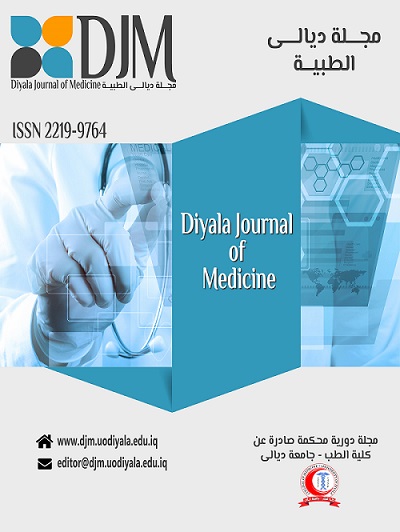Abstract
Background: Autism Spectrum Disorder (ASD) is a complex
neurodevelopmental disorder characterized by deficits in social
communication, restricted interests, and repetitive behaviors. The etiology
of ASD is multifactorial, involving genetic, environmental, and maternal
factors. Recent studies have suggested maternal factors, such as advanced
maternal age, high BMI, smoking, and depression during pregnancy, as
significant risk factors for ASD.
Objective: This study aims to investigate the maternal risk factors that
contribute to ASD in children at Diyala, Iraq.
Patients and Methods: This case-control study was conducted on 150
children, comprising 75 children diagnosed with ASD and 75 healthy
children as a control group. The study was carried out from August 2023 to
May 2024 in Diyala, Iraq. Data collection included comprehensive
demographic, social, obstetric, and maternal health histories. ASD
diagnosis was confirmed using the Childhood Autism Rating Scale 2
(CARS-2). A logistic regression analysis was performed to assess the
association between maternal risk factors and ASD.
Results: The study revealed several significant maternal risk factors for ASD.
Advanced maternal age at pregnancy (mean age 28.1 years in cases vs. 22.9
years in controls, p=0.001), high maternal BMI (mean BMI 26.9 in cases vs.
24.4 in controls, p=0.0001), maternal smoking (6.7% in cases vs. 0% in
controls, p=0.023), and maternal depression during pregnancy (22.7% in cases
vs. 0% in controls, p=0.0001) were all significantly associated with an
increased risk of ASD. The use of stimulating hormones before pregnancy also
showed a significant association (21.3% in cases vs. 4% in controls, p=0.001).
Parity, particularly having 1-2 pregnancies, was also a significant risk factor
(p=0.002).
Conclusion: This study identifies advanced maternal age, high BMI,
smoking, depression, and the use of stimulating hormones before pregnancy
as significant maternal risk factors for ASD in children.
neurodevelopmental disorder characterized by deficits in social
communication, restricted interests, and repetitive behaviors. The etiology
of ASD is multifactorial, involving genetic, environmental, and maternal
factors. Recent studies have suggested maternal factors, such as advanced
maternal age, high BMI, smoking, and depression during pregnancy, as
significant risk factors for ASD.
Objective: This study aims to investigate the maternal risk factors that
contribute to ASD in children at Diyala, Iraq.
Patients and Methods: This case-control study was conducted on 150
children, comprising 75 children diagnosed with ASD and 75 healthy
children as a control group. The study was carried out from August 2023 to
May 2024 in Diyala, Iraq. Data collection included comprehensive
demographic, social, obstetric, and maternal health histories. ASD
diagnosis was confirmed using the Childhood Autism Rating Scale 2
(CARS-2). A logistic regression analysis was performed to assess the
association between maternal risk factors and ASD.
Results: The study revealed several significant maternal risk factors for ASD.
Advanced maternal age at pregnancy (mean age 28.1 years in cases vs. 22.9
years in controls, p=0.001), high maternal BMI (mean BMI 26.9 in cases vs.
24.4 in controls, p=0.0001), maternal smoking (6.7% in cases vs. 0% in
controls, p=0.023), and maternal depression during pregnancy (22.7% in cases
vs. 0% in controls, p=0.0001) were all significantly associated with an
increased risk of ASD. The use of stimulating hormones before pregnancy also
showed a significant association (21.3% in cases vs. 4% in controls, p=0.001).
Parity, particularly having 1-2 pregnancies, was also a significant risk factor
(p=0.002).
Conclusion: This study identifies advanced maternal age, high BMI,
smoking, depression, and the use of stimulating hormones before pregnancy
as significant maternal risk factors for ASD in children.
Keywords
ASD
Autism
maternal age and autism
maternal illness and autism.
